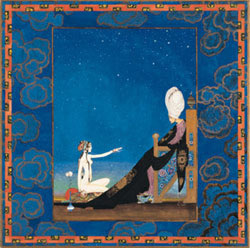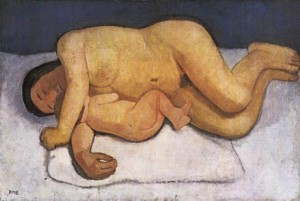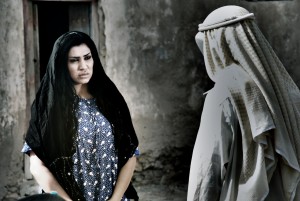Sherezade y el sultán, en el siglo XXI
Posted on February 12, 2010, by Kudzai, under Gender Masala, arts, culture, media, stereotypes.
Diana Cariboni
 Espero entre indignada y divertida el próximo 8 de marzo, Día Internacional de la Mujer… El anterior me deparó una pasmosa sorpresa. Sobre mi escritorio había una enorme rosa de pétalos amarillos y bordes rojos y una tarjeta dirigida a las mujeres del siglo XXI, en su día. (more…)
Espero entre indignada y divertida el próximo 8 de marzo, Día Internacional de la Mujer… El anterior me deparó una pasmosa sorpresa. Sobre mi escritorio había una enorme rosa de pétalos amarillos y bordes rojos y una tarjeta dirigida a las mujeres del siglo XXI, en su día. (more…)
158 Comments
A New Year for Gender Masala
Posted on January 2, 2010, by mercedes, under Gender Masala, culture, media, stereotypes, women, men and more.
This is truly a New Year in many ways: Gender Masala and I are in transition in 2010.
I am moving to Maputo, Mozambique, to work in health reporting. Gender Masala will remain in the IPS Gender Portal with a more collective identity, infused by several IPS writers.

Passenger in transit: "The real voyage of discovery consists not in seeking new landscapes but in having new eyes." Marcel Proust. Pic by Claudio Corallo.
I like the word transitions: it evokes change, birth, adaptation, growth.
This has been an exciting journey of discovery of a new medium. As the philosopher George Santayana wrote: “There is wisdom in turning as often as possible from the familiar to the unfamiliar; it keeps the mind nimble; it kills prejudice, and it fosters humor.”
Over seven months, , the pictures got bigger, the voices varied, my style freer. It was intellectually rewarding to look every week at the rich variety of IPS stories on gender and be inspired by them to write a new blog.
I will miss the weekly postings on gender, although I will continue blogging on health issues in Mozambique here:
http://knight.icfj.org/OurFellows/FromtheFieldFellowBlogs/
I want to thank my fellow bloggers, you, the readers, and, most importantly, IPS, for this opportunity to add a spicy mix to the MDG3 Gender Portal. I enjoyed it immensely and I hope you did too.
Peace in 2010.
210 Comments
A Babel of Jargon
Posted on December 31, 2009, by mercedes, under Gender Masala, culture, media, stereotypes.

A collective indigestion of jargon. Photo by Beralpo, Wikimedia Commons
My friend is looking for a job. He finds an ad of the US-based Mercy Corps and calls me for a translation. The ad is in English - sort of - but he can’t figure out what it is about:
“Invitation for a consultancy in conducting a training on enhancing facilitation skills of development practitioners of livelihood enhancement programs.”
What does this text mean exactly, except that we have a collective indigestion of development jargon from NGOs and the UN, from academics and politicians, and that the media is complicit in this masquerading of long words as substance? (more…)
61 Comments
Out of darkness: facing breast cancer
Posted on December 28, 2009, by mercedes, under Gender Masala, culture, health, media, women, men and more.
Guest blogger: Paola Rolletta, IPS stringer in Mozambique.
I feel neither more “good” nor more “patient”. I am a hard-headed woman, as always. Attached to life, as ever!

Paola Rolletta by Luis Abelard
The day when my friend Pigi, my oncologist, told me that I had breast cancer, I cried desperately. The first thing I did was to phone my partner to tell him this piece of news, of which I had had some premonition. And I understood that premonition really exists.
Curiously, I did not wonder “Why me?” My reaction was: “This cursed disease has hit me too!” (more…)
19 Comments
Fabrications around AIDS in 2010
Posted on December 26, 2009, by mercedes, under Gender Masala, HIV/AIDS, arts, culture, health, media.
By Mary Crewe and Pierre Brouard
Center for the Study of AIDS, University of Pretoria, South Africa
 Fabrications is the theme of the 2010 calendar produced by the Center for the Study of AIDS. The gorgeous images are digitally manipulated African textiles.
Fabrications is the theme of the 2010 calendar produced by the Center for the Study of AIDS. The gorgeous images are digitally manipulated African textiles.
The notion of “fabrications” was inspired by the many stories of the AIDS quilts – designed to tell a story about someone who had died of AIDS, to honour them and to create a memorial to them that could be used as part of the fabric of people’s daily lives.
A fabrication is in this sense both a physical construction of fabrics, but also a psychological and social construction, the story of a life.
We need to tell people’s stories but we also need to acknowledge that we use stories to make sense of AIDS, to cope with it, to fashion it into something bearable, to give it meaning. (more…)
69 Comments
Famous and infamous births
Posted on December 21, 2009, by mercedes, under Gender Masala, arts, children, culture, health, human rights, media, politics, religion, reproductive health, stereotypes, violence, women, men and more.

By Paula Modersohn Becker
When is a photo of a woman giving birth considered pornographic? Take your pick:
A. When it is shown in a pornographic magazine, film or website.
B. Never.
C. When it is emailed to government officials urging action to improve public health.
One could argue about A and B but this blog is about C.
Earlier this year, in Zambia, Chansa Kabwela, news editor at the feisty opposition newspaper The Post, was charged with circulating pornography with intent to corrupt public morals. (more…)
123 Comments
Women human rights defenders under attack
Posted on December 10, 2009, by mercedes, under Gender Masala, culture, human rights, media, violence, war rape, women, men and more.
Let’s do a quick review of women and violence in the news in the last weeks.

What's in the news on Human Rights Day?
Why today? Because it’s the last of the 16 Days against Violence against Women, arguably the best known global campaign of the women’s movement, and also Human Rights Day.
Today, Sahrawi activist Aminatou Haidar starts her fourth week of hunger strike at Lanzarote airport in the Canary Islands. She is so weak she has to be transported to court by wheelchair or stretcher. Last week, the head of UNHCR called on Spain and Morocco to resolve her issue on humanitarian grounds.
The award-winning Haidar is known as the Sahrawi Gandhi for her non-violent protests for the independence of her desert country, the Western Sahara, ruled by Morocco since 1975. (more…)
127 Comments
Being male was the cameraman’s bad luck
Posted on November 3, 2009, by mercedes, under Gender Masala, culture, human rights, media, stereotypes, women, men and more.
Guest blogger: Suad Hamada, IPS correspondent in Bahrain

Shall we talk about it?
A Saudi woman journalist escaped punishment last week but her cameraman wasn’t so lucky.
Rozana Al-Yami, 22, was pardoned by Saudi Arabia’s King Abdullah after the court sentenced her to 60 lashes for her work at the talk show Red Line in LBC, a Lebanese satellite TV.
She made international news. He didn’t. No one mentioned that he has to serve a two-month jail term. His name remains anonymous in press reports.
Some would call this positive discrimination in favour of women but to me iit s a general bias. Women have been striving all over the world for equality, not favoritism. (more…)
13 Comments
Beauty as an optical illusion
Posted on October 12, 2009, by mercedes, under Gender Masala, adolescents, arts, children, culture, media, stereotypes, women, men and more.
Fashion models in ads are optical illusions and the award-winning video Evolution of Beauty, from the Dove Campaign for Real Beauty proves the point eloquently. Watch it at:
http://www.campaignforrealbeauty.ca/bblank.asp?id=6895
Digital cosmetic surgery - nip-and-tuck, botox and liposuction, on the screen, with a click - render these models picture-perfect (excuse the pun) and thoroughly unreal.
There is no way a non-photoshopped woman can attain that perfection. Hey, we are human. We have flaws.
108 Comments
Putting a value on our work
Posted on September 24, 2009, by mercedes, under Gender Masala, culture, media, women, men and more.
Guest blogger: Miren Gutierrez, IPS editor-in-chief
Seven PM at the supermarket. After a long day at the office, she is standing in line to pay for groceries to make dinner, stealing glances at her watch, grappling with two young kids who want her to buy some chewing gum…

Unequal sharing of the work pie. M. Sayagues
Does this picture ring a bell? Survey after survey across the world report that women put in between 20 and 30 hours a week of domestic and family work. Unseen, unsung and unpaid, yes, but not insignificant.
Unpaid work in the home, done mainly by women, is estimated at approximately 50 percent of all productive activity even in industrial countries, and as much as 60-70 percent in many developing countries,” says Hazel Henderson in an interview with IPS. (more…)

